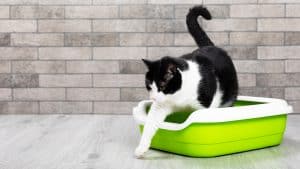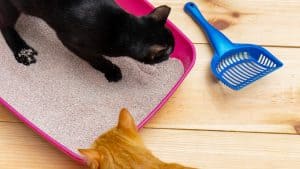Cleaning the litter box with Lysol or Clorox wipes seems like an easy way to kill germs. But think twice before using these potent antibacterial products.
Lysol and Clorox antibacterial wipes are not recommended for cleaning litter boxes regularly. Though they eliminate germs, these harsh chemicals can be harmful to cats.
Milder pet-safe cleaners are best for routine disinfecting and litter box maintenance. Keep reading to learn why heavy-duty wipes like Lysol and Clorox are not ideal for cat litter pans.
With some adjustments to your cleaning routine, you can keep the litter box hygienic without risking your cat's health.
Why Vets Warn Against These Wipes
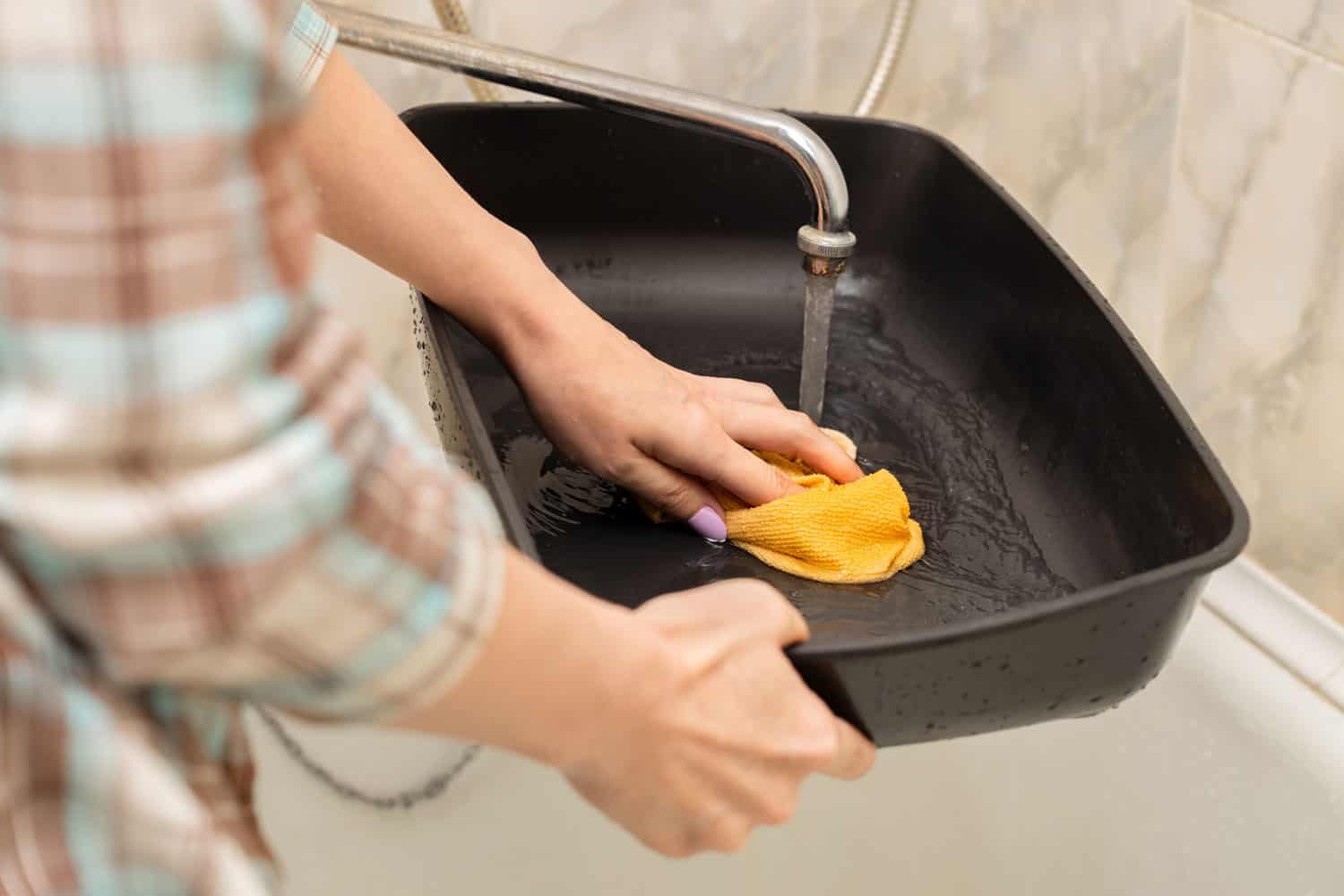
In the pursuit of a clean and sanitized environment, pet owners often turn to disinfecting wipes for convenience and effectiveness.
However, when it comes to the well-being of your feline companion, it's important to be aware of potential hazards associated with certain types of wipes.
Veterinarians caution against the use of wipes, such as Lysol and Clorox, due to the following:
1. Potent Disinfectants
Wipes like Lysol and Clorox contain robust disinfecting agents like chloroxylenol, ethanol, and quaternary ammonium.
While these chemicals effectively combat bacteria, they can pose risks to your cat's health, especially if they come into direct contact with them.
2. Respiratory Irritation
Cats are known for their acute sense of smell, and the fragrances and chemicals in disinfecting wipes can be overwhelming.
Inhaling these substances can irritate your cat's delicate respiratory system. These may cause discomfort and breathing difficulties.
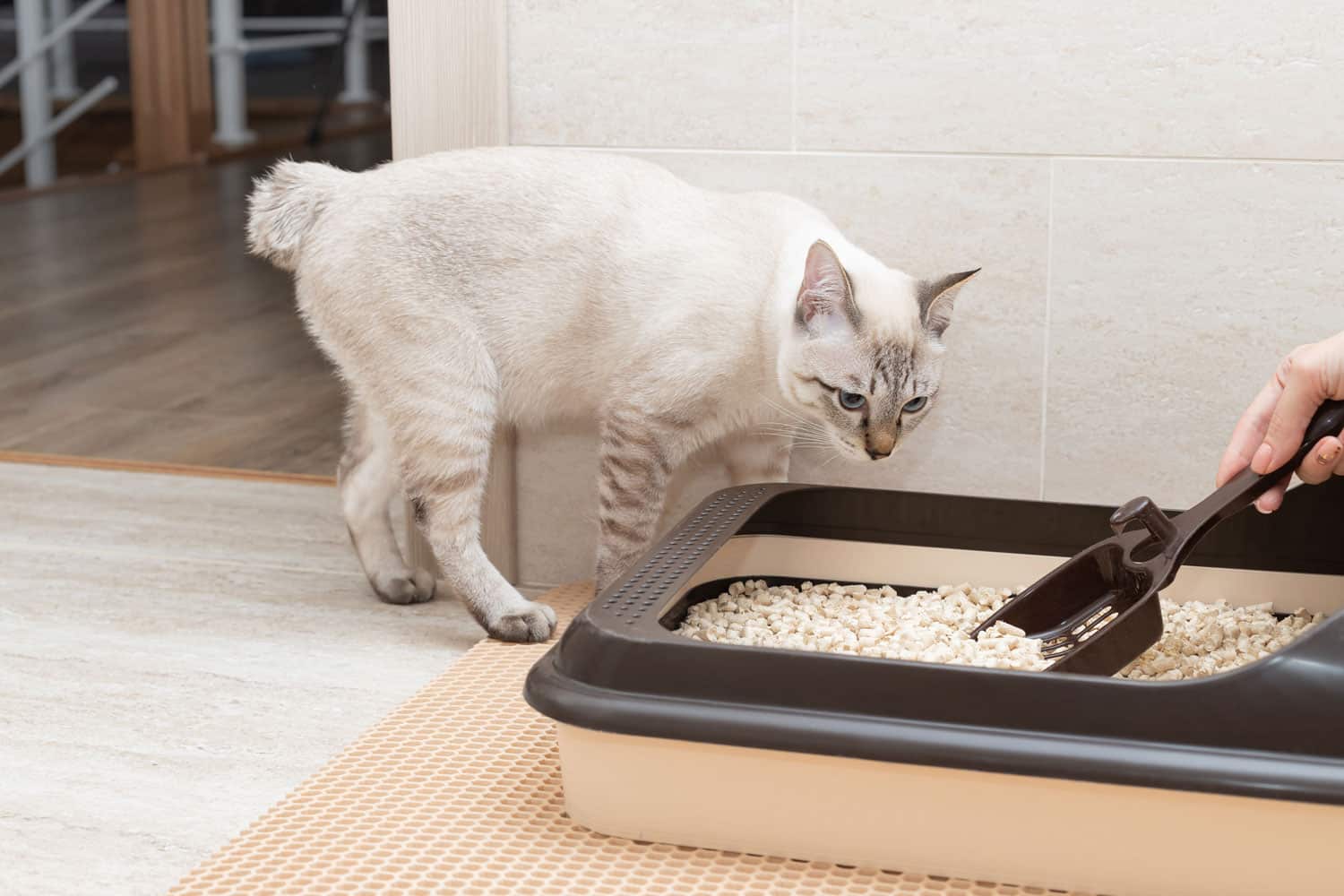
3. Ingestion Concerns
Cats are naturally curious creatures and may explore their surroundings with their mouths.
Also read: Accidentally Cleaned The Litter Box With Bleach – What Should I Do Now?
Cats may ingest these substances while grooming or exploring if residue from disinfecting wipes is left on surfaces, including the litter box.
Ingestion of these chemicals can lead to digestive upset and even conditions like chemical burns in the mouth.
4. Vulnerability of Kittens and Cats with Asthma
Kittens and cats with pre-existing health conditions, such as asthma, are particularly vulnerable to the effects of these disinfecting wipes.
Their respiratory systems may already be compromised. Thus, exposure to irritants like fragrances and chemicals can exacerbate their condition.
Can You Spray Lysol on a Litter Box?

While Lysol may promise a sanitized litter box, its potent disinfectants like chloroxylenol and ethanol could harm your cat's health.
Cats' sensitive respiratory systems can react adversely to Lysol's fumes, and ingesting residues might lead to stomach upset or worse.
Try Safer Alternatives for Litter Boxes
Safer alternatives for litter box cleaning ensure a hygienic space and minimize potential risks associated with harsh chemicals.
Here's what you need to know:
1. Gentle Cleaning Agents
Opt for mild dish soap and water or specially formulated pet-safe sprays for routine cleaning.
These options effectively remove dirt and odors without exposing your cat to harmful chemicals.
Look for products that have been tested and approved for use around pets.
Click here to see pet-safe cleaning spray on Amazon.
2. Non-Toxic Disinfectants
Consider using non-toxic disinfectants like Sa Suds, which provide effective cleaning power while prioritizing your cat's safety.
These alternatives offer peace of mind by reducing the risk of respiratory irritation or ingestion-related issues.
Click here to see Sal Suds Biodegradable Cleaner on Amazon.
3. White Vinegar
A time-tested and safe option, white vinegar is a natural disinfectant that can effectively sanitize the litter box.
Its mild acidity helps eliminate odors and germs without threatening your cat's health.
Click here to see distilled vinegar on Amazon.
4. Reserve Harsh Wipes for Deep Cleans
While disinfecting wipes have their place in thorough cleaning routines, it's wise to use them sparingly and only for deep cleaning.
Ensure that any residue left behind is rinsed thoroughly to prevent your cat from coming into contact with potentially harmful substances.
5. Avoid Fragranced Wipes
Fragranced wipes, particularly those scented with citrus or lavender, may seem appealing but can harm your cat's sensitive respiratory system.
When in doubt, check the safest litter box cleaning methods with your vet.
Let's face it: your cat's health is too important to risk!
The litter box is a personal space for your feline friend, and ensuring it's clean and safe should be a top priority.
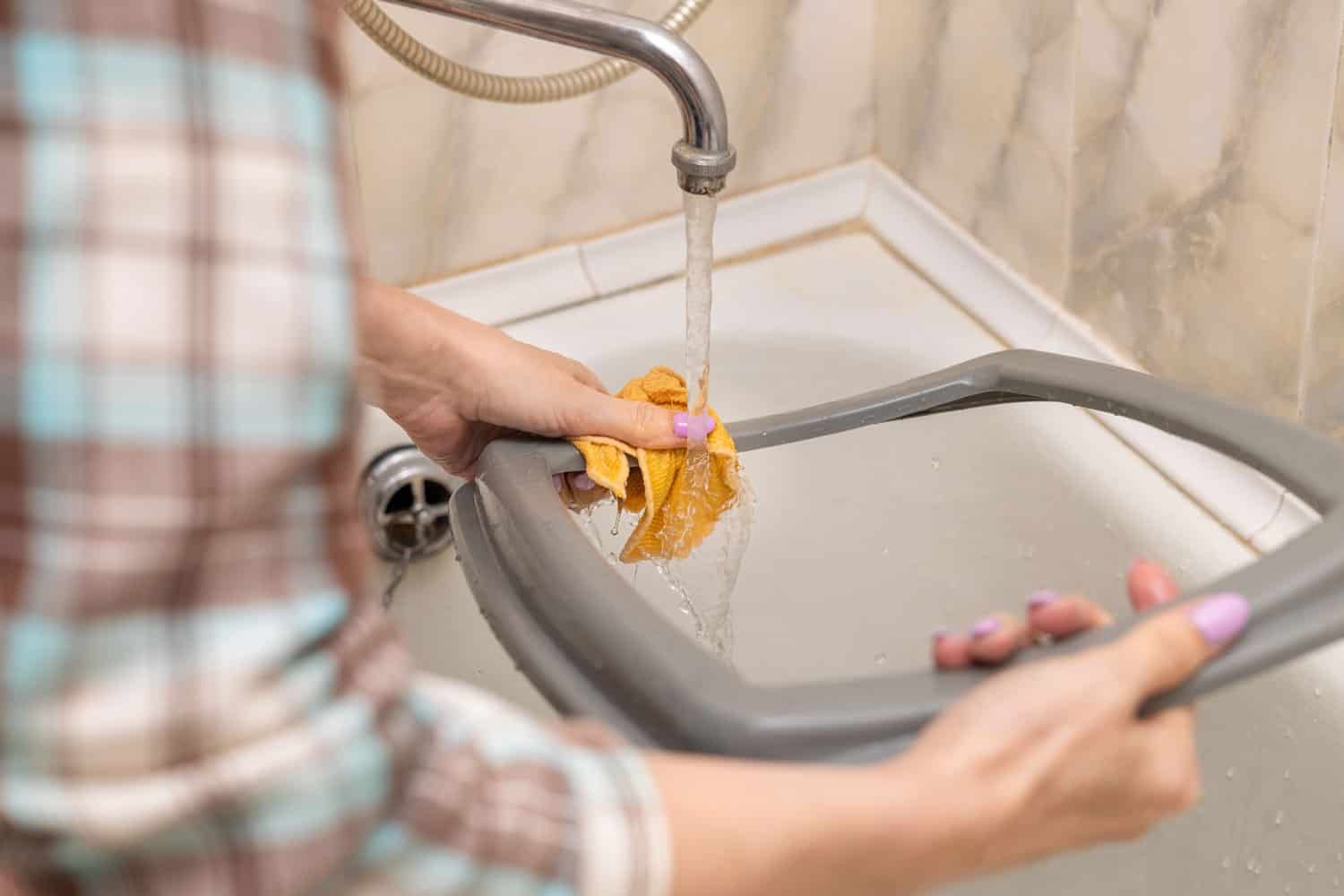
The risks associated with potent disinfectants like Lysol and Clorox wipes, especially for routine cleaning, outweigh the benefits.
In Conclusion: Making Safe Choices for Your Feline Friend
Choosing the right cleaning products for your cat's litter box goes beyond ensuring cleanliness; it's about their overall health and safety.
While potent disinfectants like Lysol and Clorox may promise a germ-free environment, they might not be the safest bet for your feline companion.
By opting for milder and pet-safe alternatives, you prioritize your cat's well-being while maintaining a hygienic litter environment.
When you make informed decisions about the products you use around your pets, you contribute to a safer, healthier living space for them.
After all, a happy and healthy cat leads to a happy home. Always keep your cat's safety at the forefront of your decisions, and consult with your vet for any concerns or queries.
Also read: How To Clean Pee From Non-Clumping Litter [Answered]




